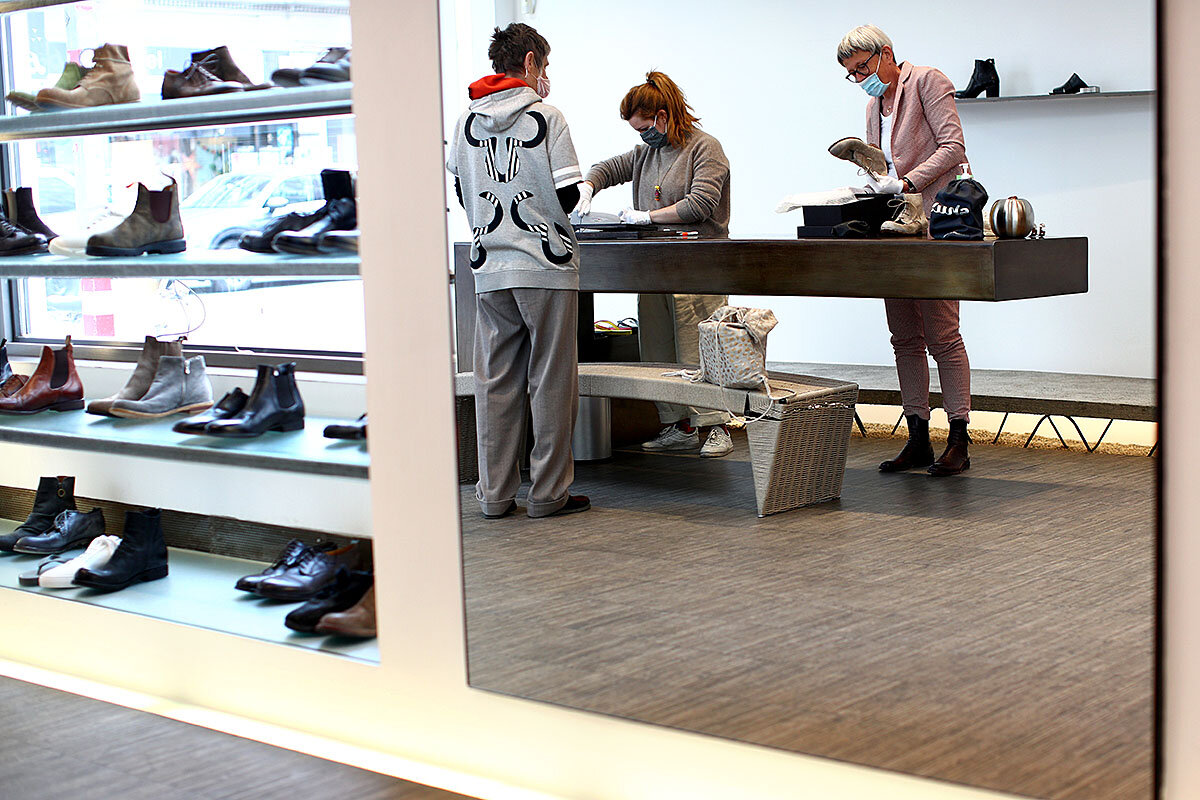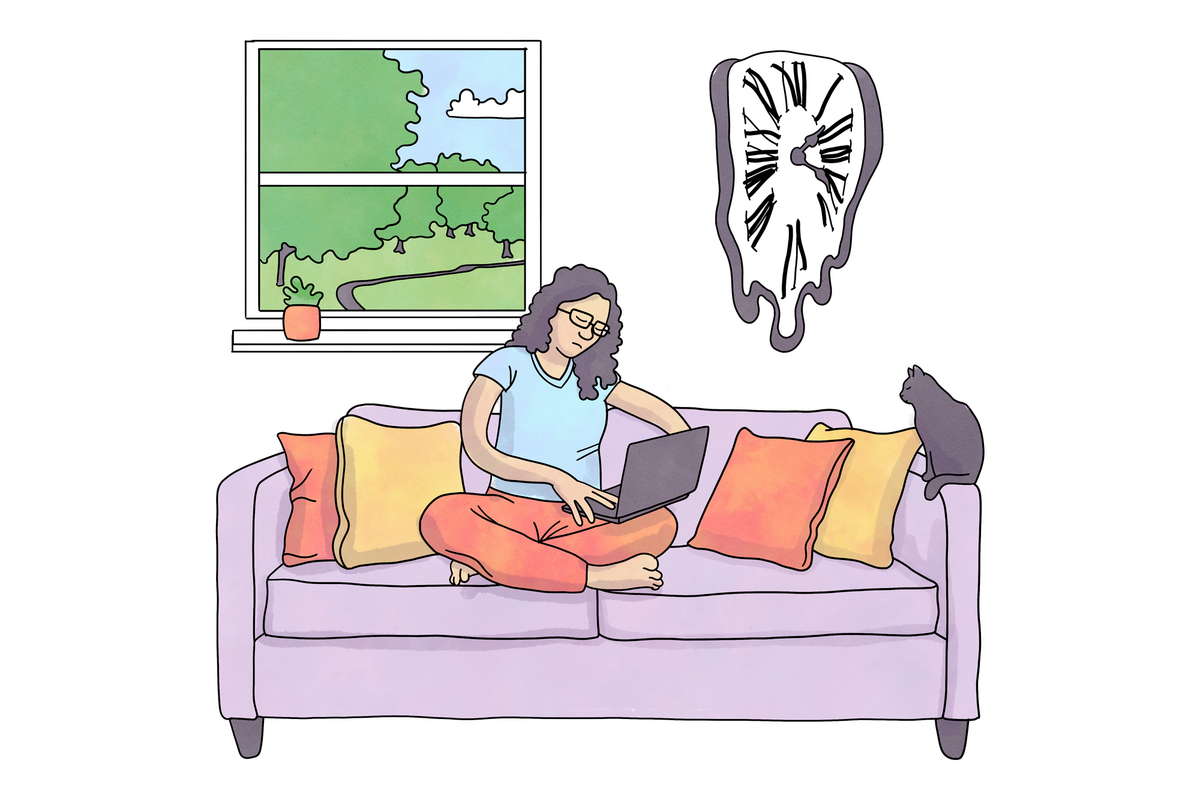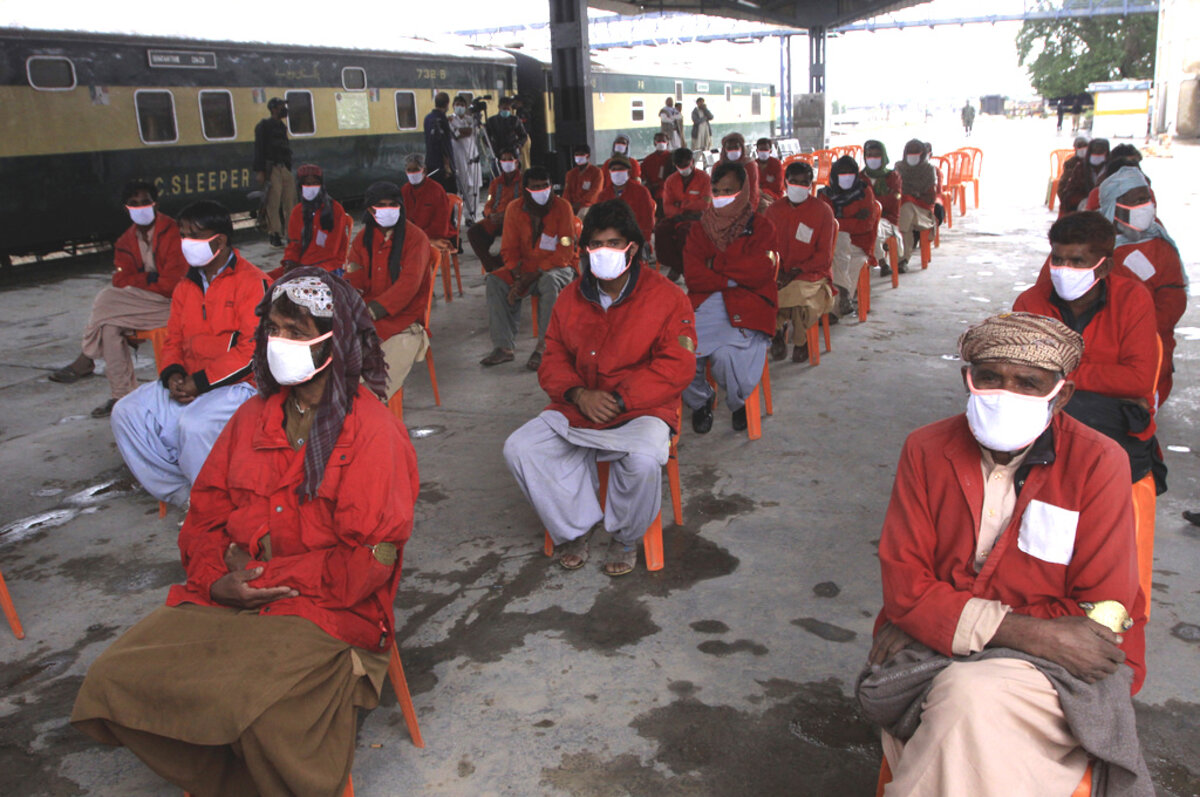While everyone wants their national coronavirus lockdown to be over, figuring out how to phase it out safely is a task fraught with problems. In Europe, Austria and Denmark are two of the first to tackle it.
Monitor Daily Podcast
- Follow us:
- Apple Podcasts
- Spotify
- RSS Feed
- Download
 Linda Feldmann
Linda Feldmann
Today we cover European countries looking at easing lockdowns, how to help teens cope with isolation, the pandemic “time warp,” a writer’s Wuhan diary, and exploring science with kids stuck at home.
First, some thoughts on renewal.
Last week my friend Marcy in Ann Arbor, Michigan, was preparing a Passover dinner when a spark from the stove lit up a nearby basket. Soon the kitchen was in flames. She called the fire department and fled with her two dogs. Her house, damaged by smoke and water, was left uninhabitable.
By that evening, Marcy already had an apartment and a bounty of food, provided by friends. Most remarkably, she proceeded with the virtual Seder she had planned for family and friends across the country. None of us were surprised she pulled this off, but it was still an impressive display of resilience – a multihour meal she conducted with good cheer. Let’s also applaud the firefighters who retrieved her laptop, phone, and purse before boarding up the house.
Marcy should be back in her house next year. Across the nation, too, Americans are looking ahead to a time of renewal, though the coronavirus emergency is far from over. Yesterday, President Donald Trump laid out guidelines for reopening the country. He didn’t address the shortage of testing and left decision-making to the states. Then today, he fanned anti-lockdown protests, tweeting out calls to “liberate” three Democratic-led states.
But politics aside, planning is surely a process that people can agree is necessary. Governors are also looking ahead – as are other nations, as highlighted in today’s first article.
Now, on to our five stories.










